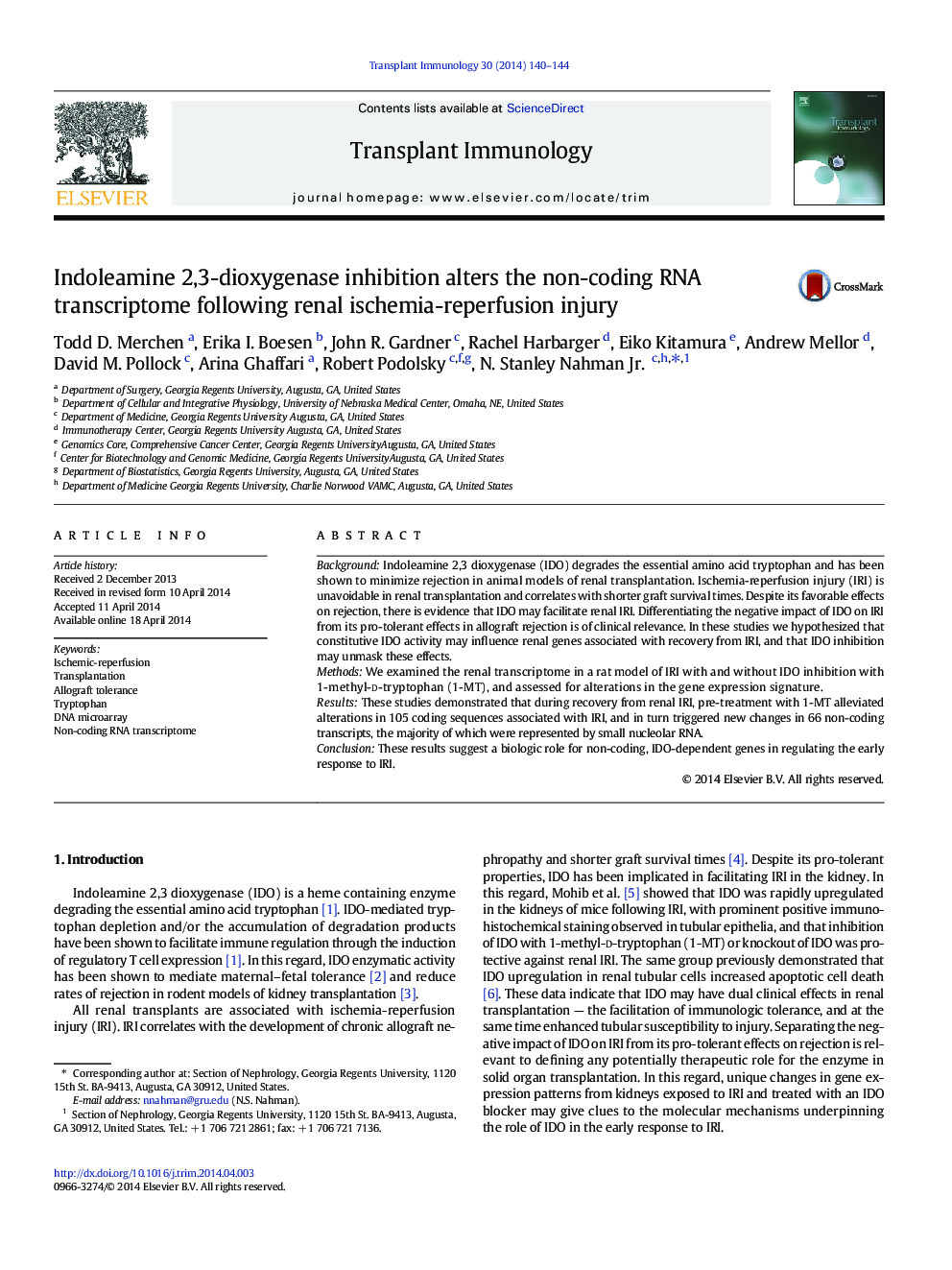| Article ID | Journal | Published Year | Pages | File Type |
|---|---|---|---|---|
| 3392072 | Transplant Immunology | 2014 | 5 Pages |
•Indoleamine 2,3-dioxygenase (IDO) is known to reduce rejection in in kidney transplants.•IDO blockade has been shown to improve renal recovery in renal ischemia-reperfusion injury (IRI).•IDO blockade in IRI is associated with changes in non-coding RNA genes.•IDO may stabilize non-coding RNA genes, but this may slow recovery from IRI.•The pro-tolerant effects of IDO need to be balanced with slowed recovery from IRI.
BackgroundIndoleamine 2,3 dioxygenase (IDO) degrades the essential amino acid tryptophan and has been shown to minimize rejection in animal models of renal transplantation. Ischemia-reperfusion injury (IRI) is unavoidable in renal transplantation and correlates with shorter graft survival times. Despite its favorable effects on rejection, there is evidence that IDO may facilitate renal IRI. Differentiating the negative impact of IDO on IRI from its pro-tolerant effects in allograft rejection is of clinical relevance. In these studies we hypothesized that constitutive IDO activity may influence renal genes associated with recovery from IRI, and that IDO inhibition may unmask these effects.MethodsWe examined the renal transcriptome in a rat model of IRI with and without IDO inhibition with 1-methyl-d-tryptophan (1-MT), and assessed for alterations in the gene expression signature.ResultsThese studies demonstrated that during recovery from renal IRI, pre-treatment with 1-MT alleviated alterations in 105 coding sequences associated with IRI, and in turn triggered new changes in 66 non-coding transcripts, the majority of which were represented by small nucleolar RNA.ConclusionThese results suggest a biologic role for non-coding, IDO-dependent genes in regulating the early response to IRI.
